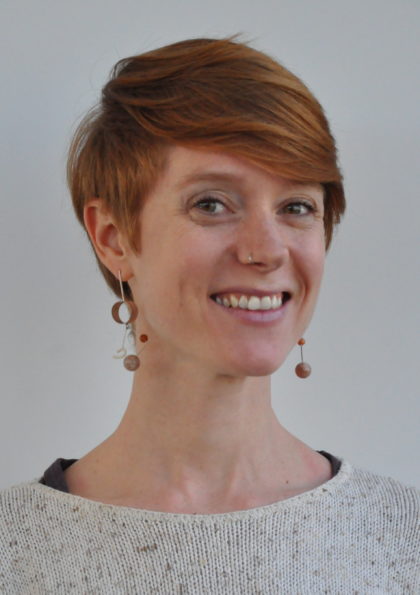
I was listening to a 2015 speech by former California congress member and former Oakland mayor Ron Dellums, who died recently of cancer, called “Vietnam: The Power of Protest.” He shared how young people have asked him about the difference between his generation–the generation of the Black Civil Rights movement and the Vietnam War protests–and their generation. He began by stating: “Martin Luther King told us to raise our voices in the name of peace and justice and equality…because it was the right thing, the moral thing, the ethical thing, the principled thing, to do. This generation must do it because it is now the only thing to do. It has now become the imperative.”
Given Dellums’ history as an activist and the conference’s context, his use of the phrase “raise our voices” conjured up images of sit-ins, mass marches and demonstrations, bus boycotts, tent cities, etcetera. Images, essentially, of people using their bodies to occupy space, to disrupt business as usual, to make themselves visible by the millions, in order to make their voices heard.
This brought to mind two thoughts: history has taught us to move closer to justice; nonviolent direct action is imperative. For me it sometimes feels like the only thing that makes sense to do, in the face of deeply entrenched, historic injustices.
These are the reasons I became involved in The Poor People’s Campaign: A National Call for Moral Revival (the Campaign) and mobilized my UU congregation. The Campaign made its national debut this past spring with six weeks of nonviolent direct action and regular teach-ins, art, culture, and music events, and mass meetings. This was a revival of the 1968 movement by the same name that Rev. Dr. King lead.
The leaders of this revival know, on a personal and historic level, that 50 years later, we do not need commemorations of the steadfast, brilliant, organizing of Dr. King and other civil rights leaders. Rather, we need a “re-consecration” of their life’s work to root out systemic racism and systemic poverty, to halt ecological devastation and militarism, to build a sustainable, peace-driven economy, and to shift our national dialog about morality to questions of how the most marginalized in our society are doing, in the words of the Rev. Dr. William Barber, national co-chair of the Campaign.
The Campaign drew me for its intersectional approach to these issues. But it was the courage, truth-telling, and faith of the people whose lives are most impacted, who are literally in a daily fight for their lives, that compelled me to risk arrest in acts of nonviolent civil disobedience, and to bring as many congregants with me as possible.
I am white, middle-class, and able-bodied. One of the realities of my privilege–is that I can choose when and how I engage with the pain and suffering caused by systemic injustices like racism, poverty, and a lack of access to healthcare.
I have the luxury to look away. I get breaks from how awful certain policies and practices of our government are.
I now notice that those of us with this privilege sometimes get caught up in asking a lot of questions about and debating tactics: is a sit-in at the U.S. Capitol the thing to do right now; is it right to block traffic outside the Department of Justice; is this or that campaign being too demanding?
With the Campaign I heard there is no such luxury, and there are no such breaks, when your daughter has died from breast cancer resulting from state legislators not expanding Medicaid, or for a black man who has known terror in every interaction with law enforcement, despite no criminal record, or when your Tribe’s land has been stolen and flooded and your treaty rights slowly stripped away by the world’s superpower and now a private corporation wants to build a pipeline under the only water source.
I am not suggesting that the Campaign leaders did not discuss and debate tactics or make decisions intentionally. In fact, I know they did. However, they launched a season of nonviolent direct action because, historically and personally, it was imperative for the 140 million people in poverty and of low-incomes, for the mothers whose children have died, and for black people who fear for their lives due to the effects of systemic racism. It was also imperative for allies, like me, to be in solidarity and fellowship, to form relationships for justice, with those impacted.
And it worked. Now, when I get discouraged or overwhelmed, I will remember Matt, a fellow arrestee, a combat veteran with PTSD, and survivor of two attempts on his life. Who, after our arrest at Senator Mitch McConnell’s office, said: “Direct action is a taste of what it’s like to be free.”
The relationships I built and the testimonies I heard with the Campaign caused my heart to break, even more deeply than the many, ever-present, injustices in my own backyard. Yet it gave me more courage, strength, and inspiration to keep fighting, now, as if my life depended on it. Why? Because I bore witness, in solidarity, with the impacted. My life, and the lives of future generations, depend on this commitment. I hope to never lose sight of this. My hope is that more of us will find the courage and support to overcome our fears and, collectively, take nonviolent direct action with the Campaign or another movement.
We who believe in freedom cannot rest until it comes!
Elisabeth Geschiere
Coordinator of Youth, Young Adult, & Social Justice Programs, UU Church of Arlington
Master of Divinity Student, Vanderbilt Divinity School
*Nonviolent direct action are techniques outside of institutionalized behavior for social change that challenges an unjust power dynamic using methods of protest, noncooperation, and intervention without the use or threat of injurious force – Daniel Hunter

